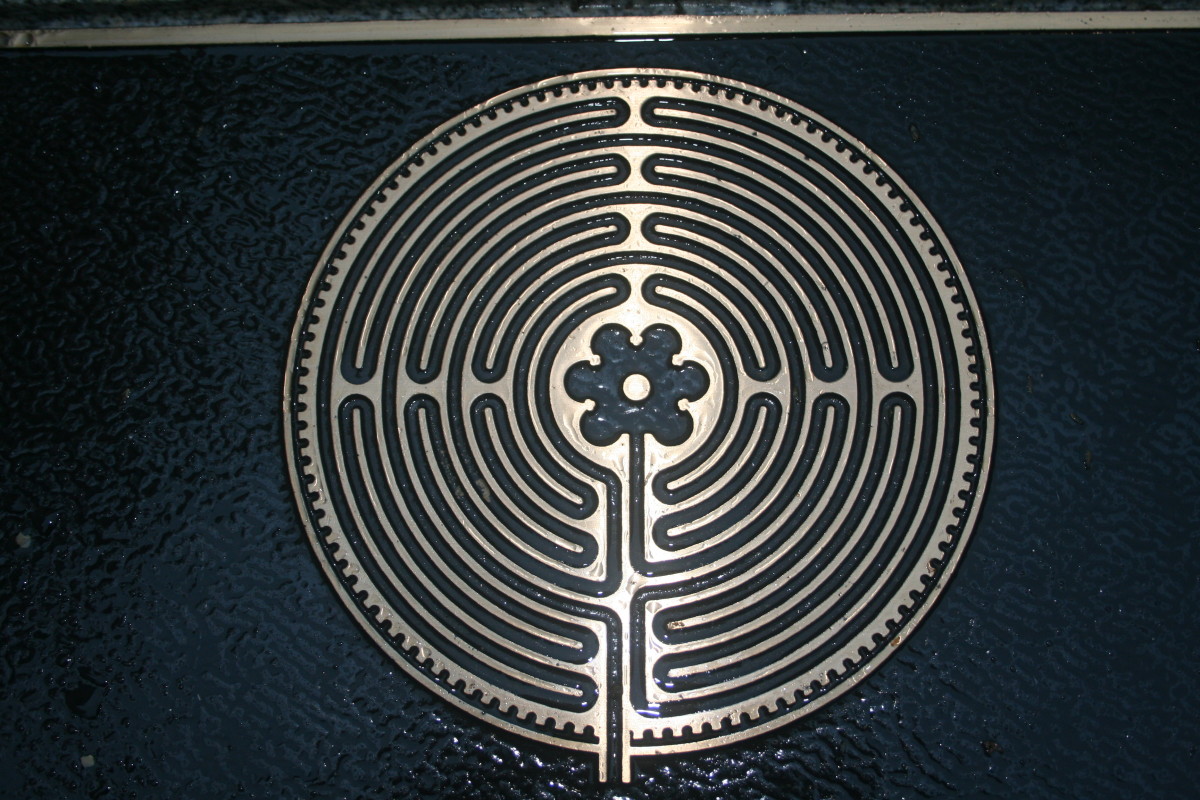The Kingdom Path to Joy and Fulfillment

Only those who have learned the power of sincere and selfless contribution experience life's deepest joy; true fulfillment -- Anthony Robbins
It is more blessed to give than to receive (Acts 20:35).
There's a path to joy, inner satisfaction and fulfillment. It's a path that the world has sought after in all the wrong places because the mind cannot understand it; mere human reasoning cannot fathom it. It's a path that can never be found in the world, but in Christ alone.
Joy is something everybody craves. But not everybody has experienced it. The feeling of joy isn't something that could be compared to happiness because they're very distinct from each other.
Joy is spiritual invoked, happiness is mentally invoked. The Holy Spirits produces joy; people produce happiness. Joy can only be found in Christ; happiness can be found outside Christ. It's possible to always be joyful; it's not possible to always be happy. Joy is gotten by being selfless; happiness is gotten by being selfish. Joy is as a result of self-love; happiness is as a result of others' love. Joy is a derivative of fulfilling divine desire; happiness is sometimes a derivative of fulfilling personal, selfish desires.
In the Kingdom of God, joy isn’t gotten by taking from people; it's gotten by giving to people. This is the kingdom path to joy and fulfillment.
The Spiritual Satisfaction
God created every man and brought him into this world to fulfill a specific assignment. And since his (God) desire was for man to not leave earth without giving to the world what he put in man, he then, decided to attach his joy, fulfillment and satisfaction to the fulfillment of his divine assignment—his purpose in life. This is the stronghold of purpose: it holds a man down, so to speak, and keeps pulling him towards satisfying his heart craving.
God, in his infinite wisdom put something in every man with which he wants them to change the world. And he made it such that there'll be such a strange frustration and sense of un-fulfillment in his (man’s) heart until he’s fulfilled his divine assignment. It doesn't matter whether the man is a Christian, Muslim or even an atheist. The stronghold of purpose pulls everyman towards itself so much that there will be no inner, spiritual satisfaction in his heart until he has accomplished this divine desire.
This is why a man might make a lot of money, but yet, still remain unsatisfied. Because money was never meant to satisfy man's dissatisfaction, it was only meant to be a tool with which he was going to use to fulfill his purpose.
King Solomon recognized this fact, he said in Ecclesiastes 3:10 (AMP), “I have seen the painful labor and exertion and miserable business which God has given to the sons of men with which to exercise and busy themselves. He has made everything beautiful in its time. He also has planted eternity in men's hearts and minds [a divinely implanted sense of a purpose working through the ages which nothing under the sun but God alone can satisfy], yet so that men cannot find out what God has done from the beginning to the end.”
What are you passionate about? Do you feel joyful and satisfied when you’re not granted the opportunity to do it? Of course not, now, that’s a clue to your divine assignment: your passion.
Everybody longs for spiritual satisfaction the same way they desire to eat and feel satisfied physically; however, many aren’t aware of the path to this spiritual satisfaction. Probably because the itch to satisfy a spiritual hunger isn’t as obvious as the itch to satisfy an empty stomach.
Jesus, while he was on earth was passionate about preaching the gospel, it was his spiritual itch. He even went ahead to associate the satisfaction he gets from eating physical food to the spiritual satisfaction and fulfillment he would get from fulfilling his divine assignment—part of which was to preach the gospel.
For example, not long after preaching the gospel to a woman, he told his disciple that he had food to eat that they had no idea about. When he was interrogated about this food, he said, “My food is to do the will of Him who sent Me, and to finish His work.” (John 4:34, NKJV).
That’s another way of telling us that spiritual satisfaction and joy lies in fulfilling your divine assignment. And if you don’t want to keep feeling spiritually hungry (frustrated, depressed, miserable), you need to fulfill your divine assignment.
It’s All About Giving
The Bible says love does not seek its own (1 Corinth. 13:5). Yet, God put an inner, spiritual desire to seek satisfaction. Well, does this mean you shouldn’t seek your own joy and satisfaction? Of course not, in fact, in the 3rd verse, 1 Corinthians 13, the Bible says if you do certain things you would gain nothing. That’s a way of God telling you ‘don’t do that because you wouldn’t gain anything and I do want you to gain something.’
Well, what’s this gain we’re talking about?: Simply put, it’s the gain you get from giving to people; it’s the gain you get from being selfless. You see, the first and most distinct characteristic of love is that love gives. For example, God showed his love towards us by giving us his only Son to dies in our place (John 3:16).
God put men on the earth to selflessly give to one another, not to selfishly take from one another. Anyone who does the opposite of this divine rule might feel happy for a while but will never find joy and true inner fulfillment because joy is derived from fulfilling divine assignment. Joy is derived from walking in love, giving to people what God put you on the earth to give them.
The Selfless Receiver
Have you ever heard of a selfless receiver? Well, who is a selfless receiver? A selfless receiver is one who isn’t preoccupied with self, and consequently gives himself to people. This way, he is able to receive joy, fulfillment, and all the other benefits that come with giving in the kingdom of God.
This is how things work in the kingdom of God. You know, you can only receive so much as you are able to give. For example, if you want to feel joyful, ask yourself, “how many people have I been able to help or make happy in any way?” It doesn’t matter what it is, you would only be able to receive as much as you’ve been giving.
Everything you would ever get—whether joy or sadness—depends on your level of giving, investment or selflessness. Not to mention, your money depends on the level of your productivity (how much you’ve been able to satisfy people with your product). Your giving has to be involved.
Even the smallest thing you give, like just smiling at someone, can produce for you a sense of fulfillment on the inside that you can’t explain. This is the reason why insulting someone can make you feel happy but never joyful. Jesus said it is more blessed to give than to receive (Acts 20:35). That’s the path to joy in the kingdom.
Many people get easily offended and depressed because they are self-occupied and selfish. They don’t know that the path to joy and fulfillment in the kingdom of God is selflessness. Hence, when they get offended, they try to retaliate by being selfish—throwing insults and invectives at people—only to find out in the long run that such action doesn’t really satisfy at all.
Being selfish never produces joy because joy isn’t an emotion that you can produce by yourself—it comes to you (Brene Brown). Consequently, a selfish and self-centered person cannot receive anything in the kingdom, not even joy. His receptive ability has been hindered by his self-centeredness. He’s seeking joy in the wrong place, where he’ll never find it, in selfishness. As a result of this, the key to joy and inner fulfillment is selflessness—giving love and your gift to the world, fulfilling divine rule.
© 2017 Matthew Joseph








